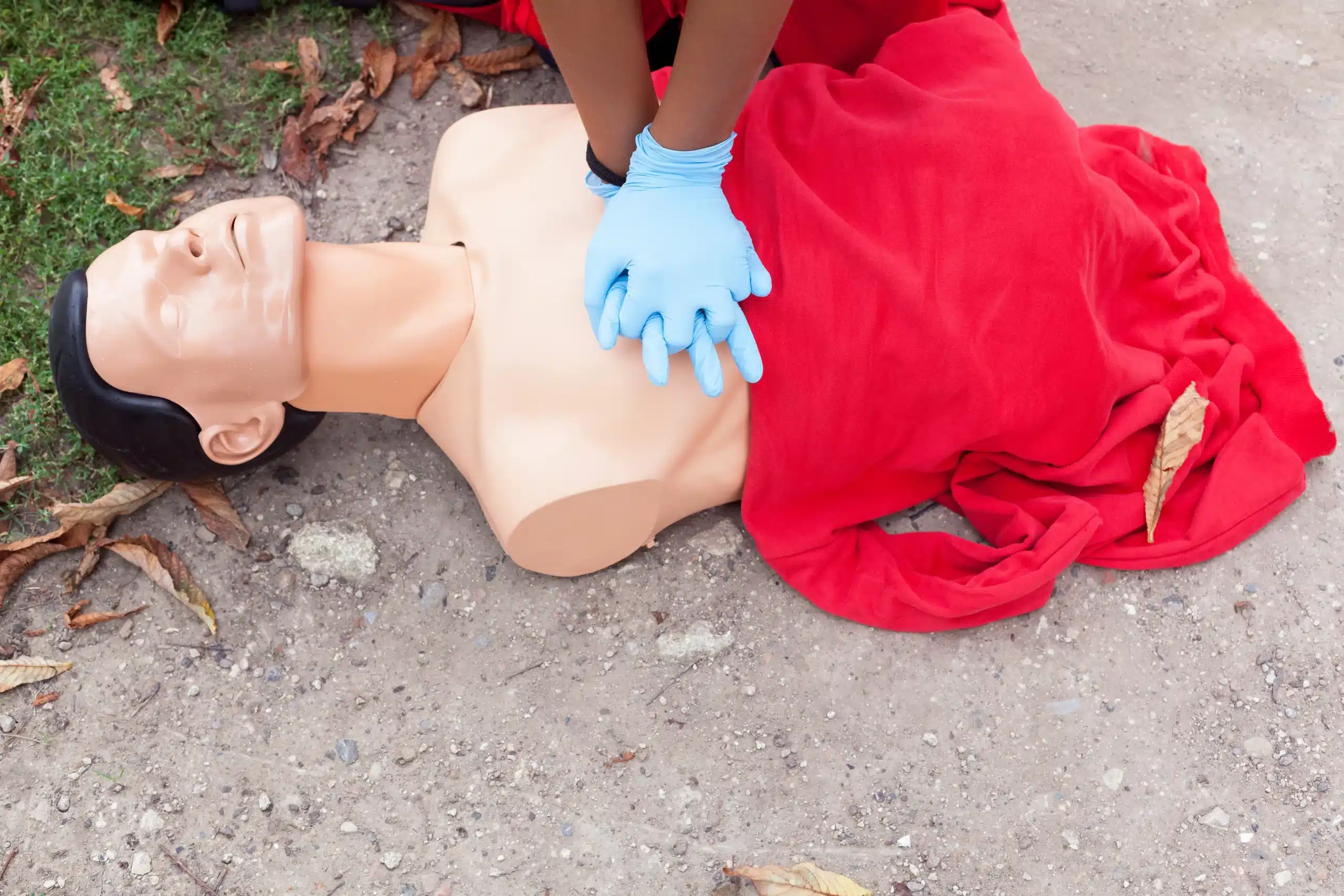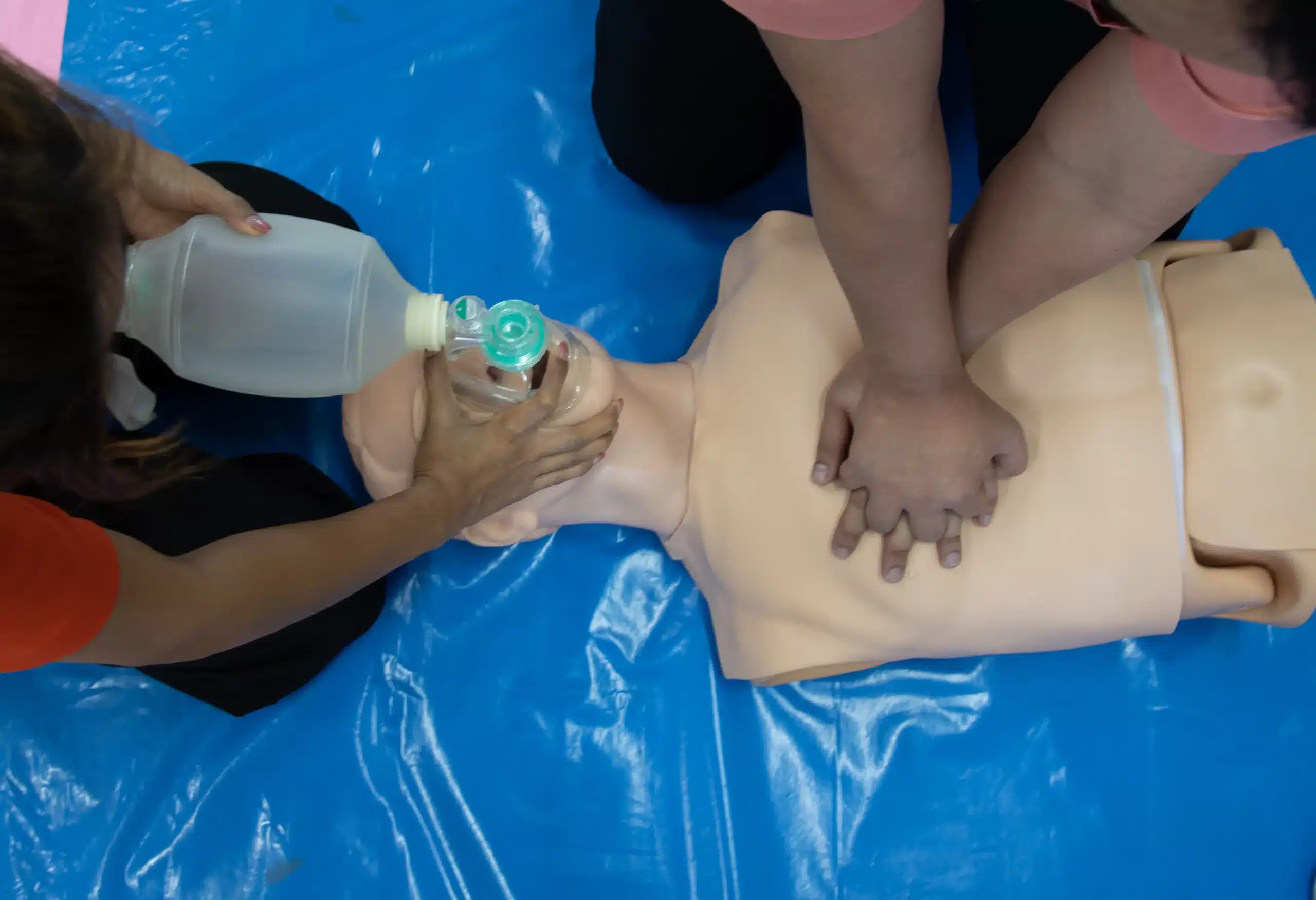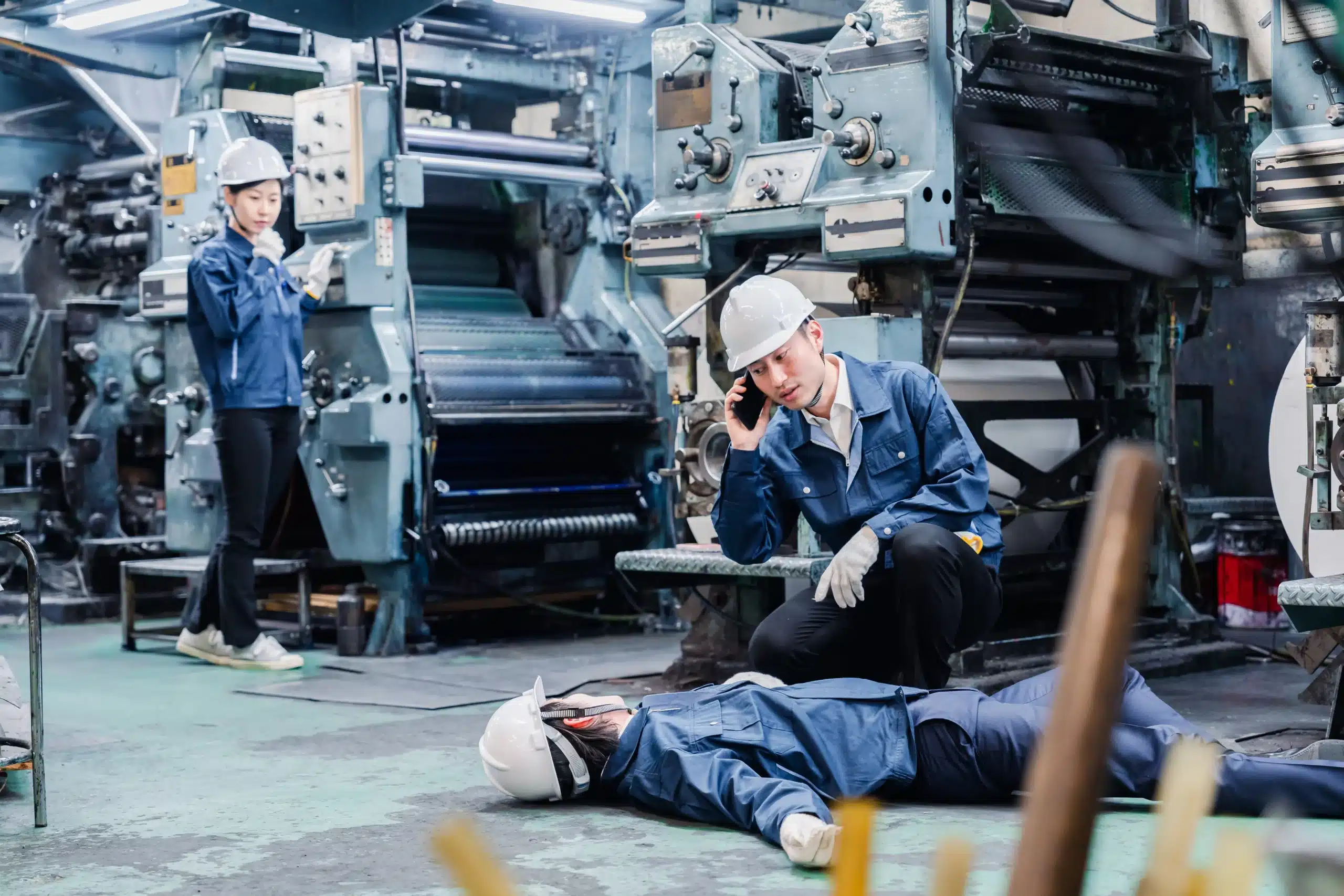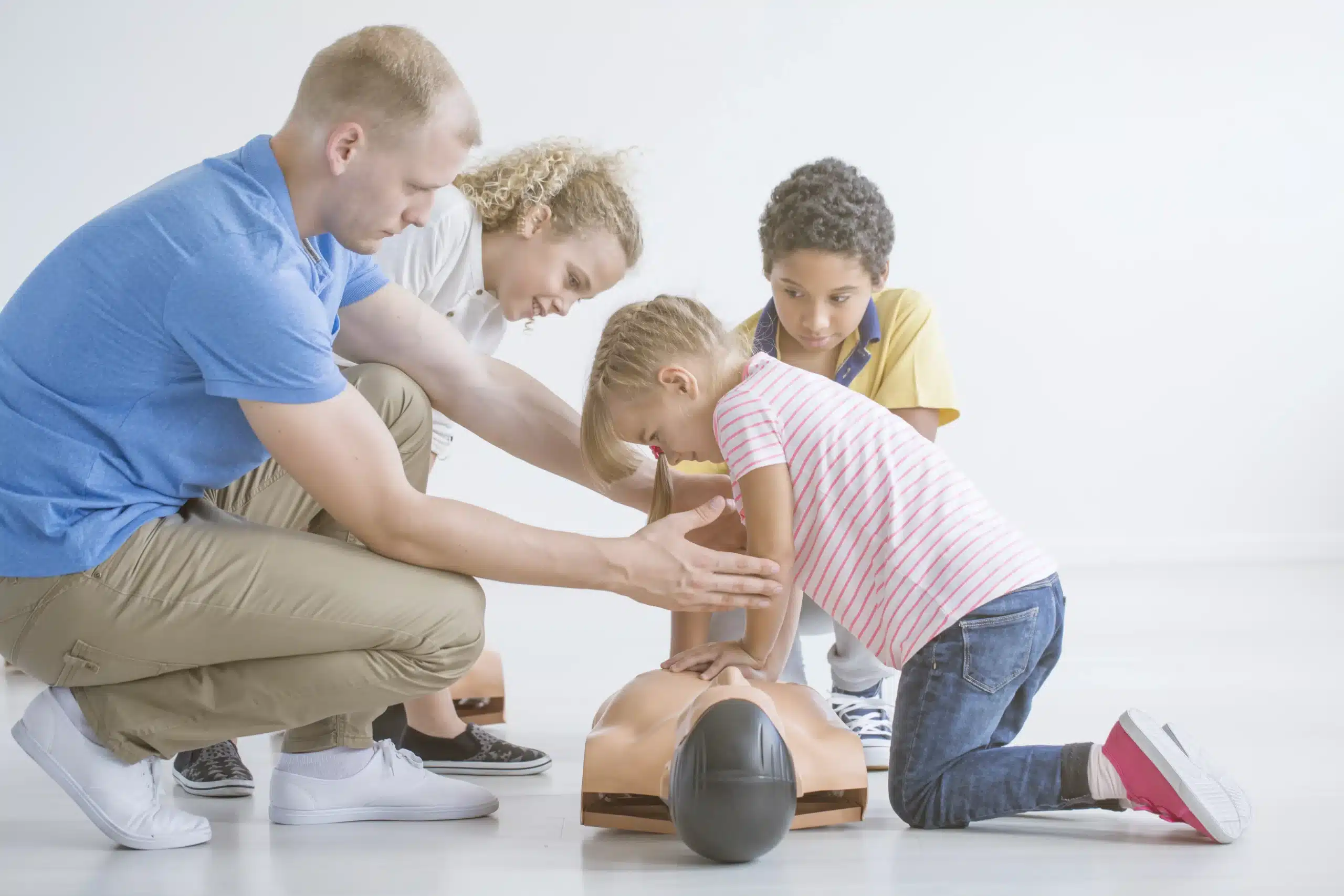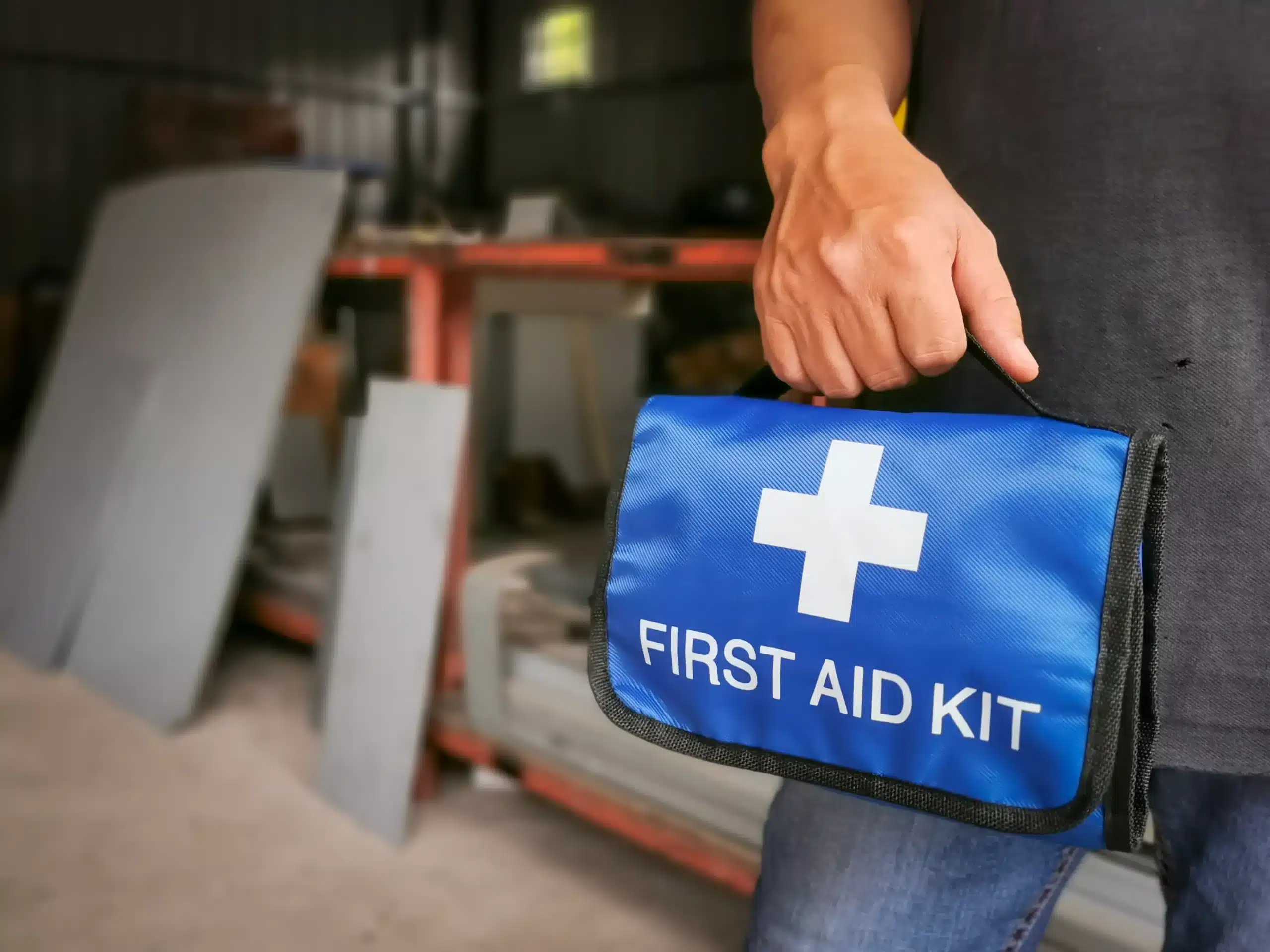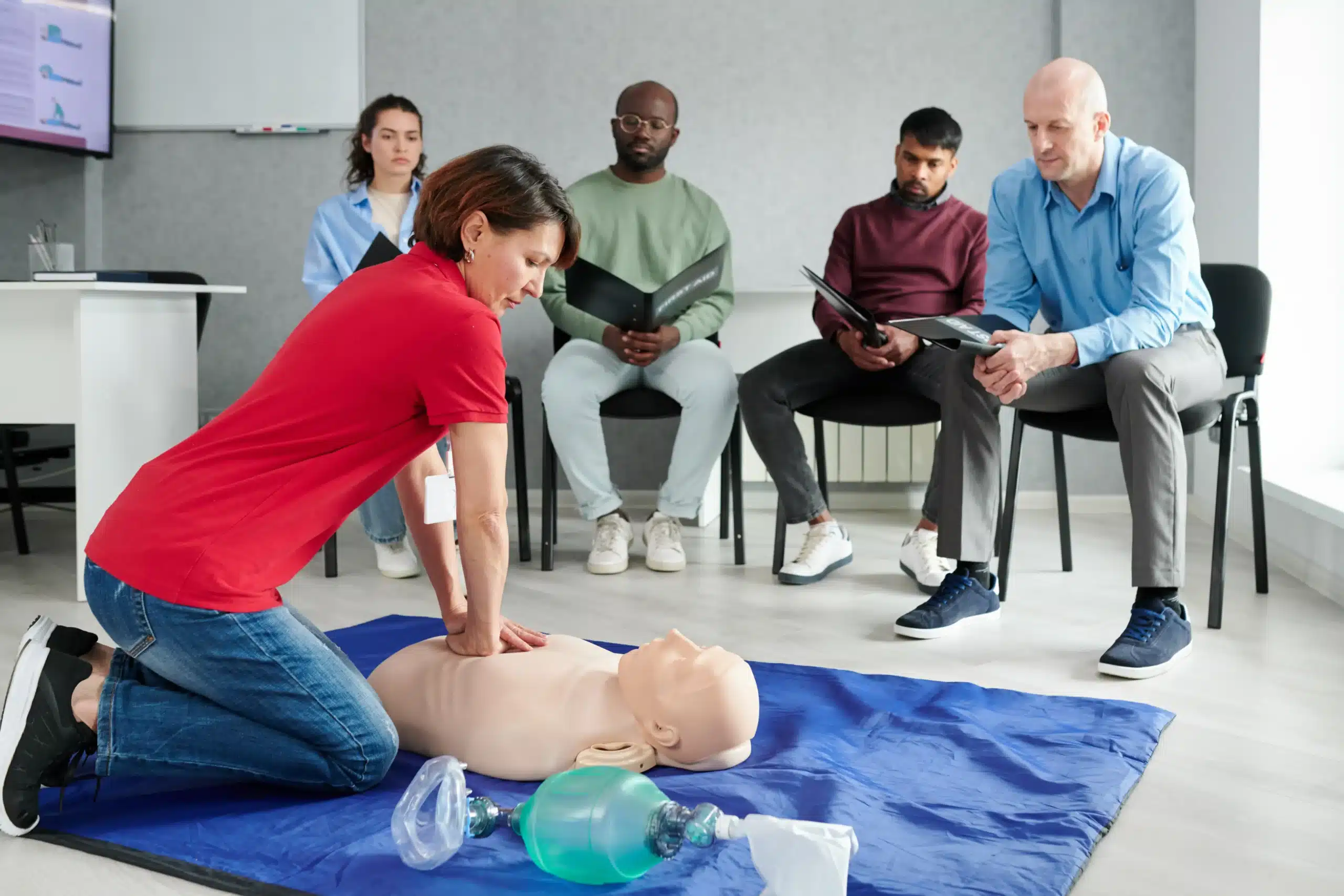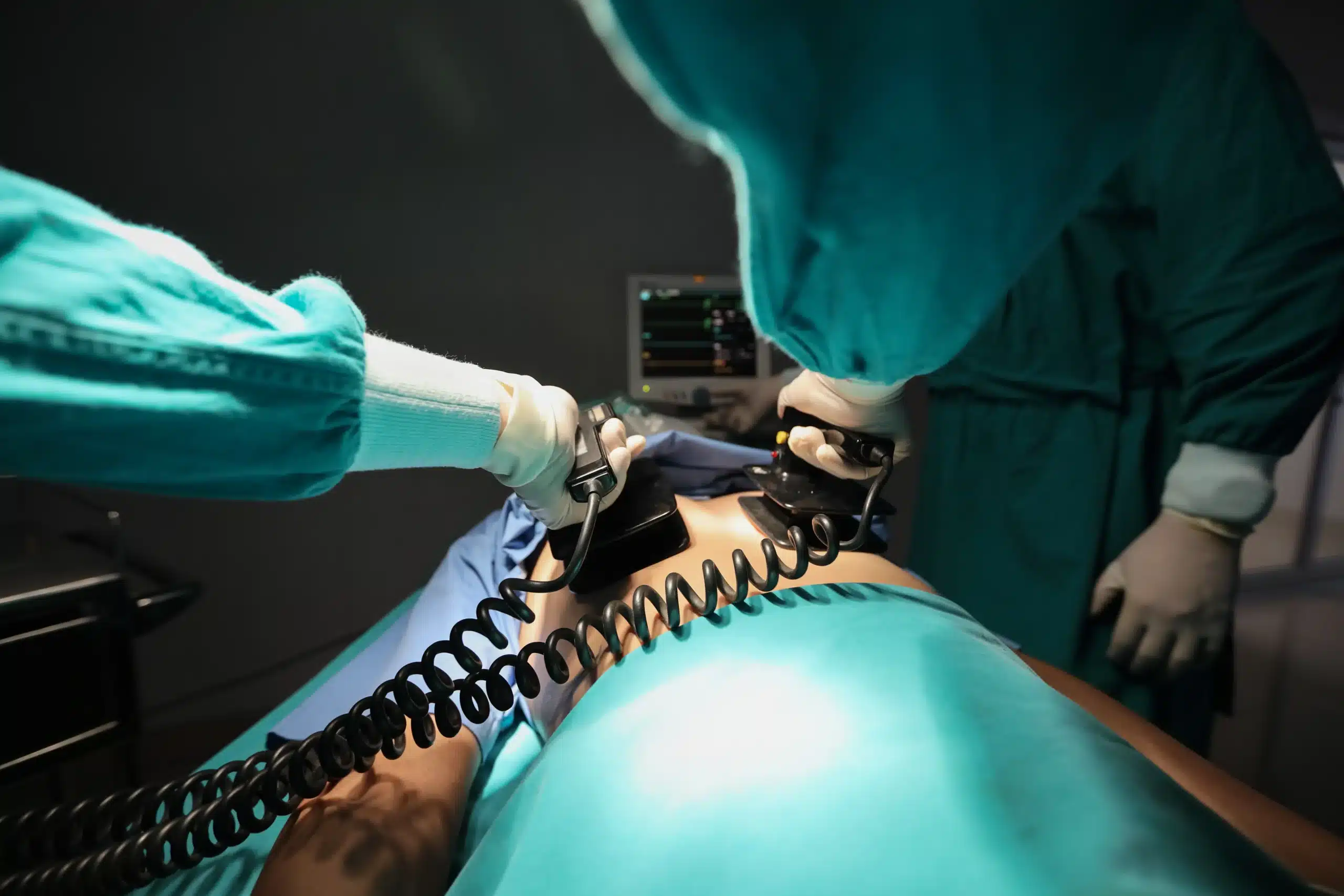Ready to gain life-saving skills and boost your career prospects? BLS certification opens doors to a wide range of healthcare roles and empowers you to respond confidently in medical emergencies. Whether you’re a healthcare professional, a student exploring career options, or simply someone who wants to be prepared for anything, BLS training provides invaluable knowledge and skills. This comprehensive guide covers everything you need to know about BLS certification, from course content and available training formats to cost considerations and career benefits. Plus, we’ll help you find “BLS certification near me” and guide you through the process of choosing the right training program. Let’s get started!
Key Takeaways
- BLS certification empowers you to act: It provides essential life-saving skills applicable in various emergencies, from performing CPR and using an AED to managing airways. Find a course that suits your learning style and schedule.
- Choose a reputable training provider: Look for AHA-certified courses, compare costs (and ask about discounts!), and consider factors like instructor experience and course flexibility. Sunnyvale CPR Classes offers high-quality, affordable training.
- Maintain your skills: BLS certification requires renewal. Stay prepared by taking refresher courses and keeping up with the latest guidelines. Your skills can make a real difference in a crisis.
What is BLS Certification & Why Do You Need It?
BLS certification, or Basic Life Support certification, teaches you the skills to respond to life-threatening emergencies. It’s a vital credential for healthcare providers and anyone who wants to be prepared to help in a crisis. But what does BLS training actually involve, and why is it so important? Let’s break it down.
What Does BLS Cover?
BLS certification covers core life-saving techniques. You’ll learn how to perform high-quality CPR for adults, children, and infants, including how to use an AED (automated external defibrillator). BLS training also covers relieving choking and basic airway management. These skills are the foundation of emergency care and can dramatically improve the chances of survival. For more details on what’s included in our BLS classes, take a look at our BLS course page.
Why is BLS Important?
BLS certification equips you with the knowledge and confidence to respond effectively in critical situations. From healthcare professionals working in hospitals to everyday people at home or in their communities, BLS training provides essential skills applicable in any emergency. Learning BLS can make a profound difference, potentially saving lives. It empowers you to act quickly and decisively when every second counts. If you’re considering BLS training, know that you’re investing in skills that can have a real impact. Even if you never need to use them, the peace of mind that comes with being prepared is invaluable. Check out our low price guarantee for BLS certification in Sunnyvale.
Find BLS Certification Courses Near You
Where to Look for Local and Online Courses
Finding the right BLS certification course requires a bit of research. First, consider whether you prefer learning online or in person. Hands-on learners often thrive in a classroom setting with direct interaction and feedback. If your schedule is tight, online or blended learning might be more convenient. Next, check the provider’s credentials. Make sure they offer American Heart Association (AHA) certified courses, as these are widely recognized. Finally, compare costs. Course fees can vary, so look for group discounts or promotions. Ask about any extra fees for materials or certification cards.
BLS at Sunnyvale CPR Classes
Here at Sunnyvale CPR Classes, we offer AHA-certified BLS courses designed to give you the skills to handle medical emergencies. Our courses cover everything from CPR and AED use to airway management and rescue breathing. We’re committed to providing affordable, high-quality training in Sunnyvale, California, serving Sunnyvale, Santa Clara, and San Jose. We also offer the RQI program for healthcare professionals looking for a flexible way to renew their certifications. Check out our low-price guarantee; we’re confident we have the best rates in Santa Clara County.
Other Reputable Training Providers
American Heart Association
The AHA often lists certified training centers on its website, making it easy to find local classes. They set the standards for CPR and emergency cardiovascular care, so training directly through them ensures high quality.
American Red Cross
The American Red Cross also offers BLS certification. They have a variety of course formats, including blended learning that combines online coursework with in-person skills sessions. You can earn your BLS certification your way.
National CPR Foundation
The National CPR Foundation focuses on CPR and BLS training resources. They offer various certification programs and emphasize best practices in emergency healthcare.
ProTrainings
ProTrainings offers online healthcare training courses, including BLS certification. Their online format is convenient for busy professionals.
Health & Safety Institute (HSI)
HSI provides BLS training programs for healthcare providers, public safety professionals, and students in related career training programs. They offer various learning solutions. Their BLS training program may be a good fit for you.
Choose the Right BLS Training Format
Finding the right BLS training format depends on your learning style, schedule, and budget. Let’s break down the most common options: in-person, blended learning, and online courses.
In-Person Classes: Pros and Cons
In-person BLS training offers hands-on learning and direct interaction with an instructor. This format is great for those who learn best in a traditional classroom setting and value real-time feedback. You can ask questions and practice skills with classmates, building confidence in your abilities. BLS classes at Safety Training Seminars in Sunnyvale cost around $120, which covers your training materials, skills testing, and two-year certification card. In-person training does require a greater time commitment, as you’ll need to attend the entire session at a scheduled time and place.
Blended Learning
Blended learning combines online and in-person training. You’ll typically complete the cognitive portion of the course online at your own pace, then attend a shorter in-person skills session. This approach offers flexibility while still providing the hands-on practice necessary for mastering BLS skills. It’s a great option for busy professionals or those who prefer a more independent learning style for the coursework.
Online Courses
Fully online BLS courses offer maximum flexibility, allowing you to complete the training whenever and wherever it’s convenient. These courses often use interactive modules, letting learners progress at their own speed. The system may even adapt to the learner’s knowledge, potentially shortening the overall time needed to complete the training. However, fully online courses may not meet all requirements for healthcare providers. Always check with your employer or licensing board to ensure the format aligns with their standards. A blended learning approach is often preferred, as it combines the convenience of online learning with essential hands-on skills practice.
What to Consider When Choosing
When deciding on a BLS training format, consider your learning preferences. Do you thrive in a classroom environment, or do you prefer self-paced learning? Also, consider the training provider’s reputation. AHA certification is widely recognized and often a requirement for healthcare professionals. Finally, think about course costs. Be mindful of extra fees for materials or certification cards, and explore group discounts if you’re training with colleagues. Choosing the right format will set you up for success in your BLS training.
How Much Does BLS Certification Cost & Is It Worth It?
So, you’re ready to get your BLS certification—fantastic! But naturally, you’re probably wondering about the cost and if it’s a worthwhile investment. Let’s break down typical prices, potential discounts, and the undeniable career benefits that come with being BLS certified.
Typical Prices & What Affects Them
BLS classes in Sunnyvale typically cost around $120. This usually covers your training materials, skills testing, and your two-year certification card. Factors like the course format (online, blended, or in-person) and the training provider can influence the final price. For example, online courses sometimes offer a lower price point, while in-person training at established institutions like Safety Training Seminars often includes hands-on practice with experienced instructors. When comparing prices, be sure to factor in any extra fees, such as for replacement cards or expedited processing. For the most up-to-date pricing, it’s always best to check directly with the provider. Learn more about BLS courses in Sunnyvale on our blog.
Discounts and Promotions
Looking to save some money on your BLS certification? Many training centers offer discounts, especially for group registrations. This can be a great option if you’re signing up with colleagues or friends. Safety Training Seminars offers a low-price guarantee for BLS certification courses in Santa Clara County, ensuring affordability for everyone. Before committing to a course, ask about any available discounts or promotions to make the most of your training budget. You might be surprised at the savings you can find!
BLS Certification: Career Benefits
Is BLS certification worth the investment? Absolutely. Whether you’re a healthcare professional, a teacher, a coach, or simply someone who wants to be prepared for emergencies, BLS training equips you with invaluable, life-saving skills. BLS certification empowers you to respond effectively in critical situations, providing immediate care and potentially improving outcomes. It demonstrates your commitment to safety and preparedness, a significant asset in various career paths. From healthcare settings to community organizations, BLS-certified individuals are highly valued for their ability to handle emergencies with confidence and competence. Plus, knowing you have the skills to potentially save a life brings a sense of personal empowerment that goes beyond any price tag.
Get BLS Certified: Steps From Start to Finish
Getting your BLS certification is straightforward. Here’s a step-by-step guide:
Register & Prepare for Your Course
First, choose a BLS course that fits your needs. Consider your learning style (online or in-person), the training provider’s reputation (American Heart Association certification is important), and the total cost. Many providers offer group discounts, so be sure to ask. Once you’ve registered, you’ll receive instructions on how to prepare for your class. This might include reviewing online materials or completing assigned readings.
What Happens During Training?
BLS training gives you the skills to respond to medical emergencies. Whether you’re a healthcare provider or want to help your community, BLS training provides the knowledge and confidence to act in critical situations. During training, you’ll learn essential life-saving techniques, including CPR, how to use an AED, and how to relieve choking. Safety Training Seminars offers flexible class times and convenient locations, including our Sunnyvale location, to make training accessible. For healthcare professionals needing a quick and efficient way to renew their certification, the RQI program is a great option.
The Certification Exam & Skills Test
Most BLS certification courses use a blended learning approach, combining online learning with in-person skills sessions. This allows you to learn the material online at your own pace and then practice your skills in person. You’ll complete a written exam covering BLS principles and procedures, and a skills test where you’ll perform techniques like CPR and AED use on a manikin. After successfully completing both, you’ll receive your BLS certification card, valid for two years.
Keep Your BLS Certification Current
Once you’ve earned your BLS certification, staying current is key to ensuring you’re always prepared to provide effective, high-quality care. This involves understanding renewal requirements, refreshing your skills, and keeping up with the latest guidelines.
How Long Does Certification Last & How to Renew
BLS certification is typically valid for two years. As your expiration date approaches, you’ll need to take a BLS renewal course. These courses cover the same core content as the initial certification but are often shorter, focusing on key skills and updates to guidelines. You can find renewal courses both online and in person, offering flexibility to fit your schedule. Check with your certifying organization for specific requirements. At Sunnyvale CPR Classes, our certifications are valid for two years, and we offer streamlined renewal courses to make the process easy.
Refresher Courses
Even if your certification isn’t due for renewal, periodic refreshers can help maintain your skills and confidence. The Red Cross offers resources like games, quizzes, and videos to reinforce your knowledge and keep your skills sharp between renewals. Practicing key techniques like chest compressions and rescue breaths can make a significant difference in a real-life emergency. Consider adding practice sessions to your routine to stay proficient.
Stay Up-to-Date on Guidelines
Emergency care guidelines are constantly evolving as medical research advances. Staying informed about these updates is crucial for providing the best possible care. Organizations like the Red Cross ensure their curriculum incorporates the most up-to-date medical information and techniques, reviewed by expert advisory councils. By staying current with these guidelines, you’ll be better equipped to handle any emergency situation. Check our website or your certifying organization’s website for the latest information.
Prepare for Your BLS Course & Succeed
Getting ready for your BLS class can make a big difference in how well you do. A little prep work goes a long way! This section covers helpful study tips and how to tackle common challenges.
Study Materials & Prep Tips
BLS certification empowers you to save lives, whether you’re a healthcare professional or someone who wants to be prepared for emergencies. It equips you with the skills to respond effectively in critical situations. Sunnyvale CPR Classes offers a guide to BLS certification to help you understand the process. Our BLS certification classes blend online learning with hands-on skills sessions, so you can choose the format that best suits your schedule. This flexibility makes it easier to fit training into your busy life. Before your class, familiarize yourself with basic life support concepts. You can find resources and study materials online or at your local library. Previewing the material will give you a head start and make the in-person training even more effective.
Common Challenges & Solutions
One common challenge is figuring out the best way to renew your BLS certification. Choosing a renewal course involves considering your learning style (online or in-person), the provider’s reputation (AHA certification is key), and the cost. Look for providers like Safety Training Seminars, which offers accessible CPR certification with flexible class times, convenient locations in Sunnyvale, a low-price guarantee, and the streamlined RQI program for quick recertification. Another challenge is simply finding the time for a class. Think about your schedule and budget when selecting a provider. Remember, obtaining BLS certification is a valuable investment in your skills and can open doors to various healthcare roles. If cost is a concern, explore group discounts or check if your employer offers assistance with training expenses. Don’t hesitate to contact Sunnyvale CPR Classes directly—we’re happy to answer your questions and help you find the right BLS course for your needs.
BLS vs. Other Life Support Certifications
This section clarifies how Basic Life Support (BLS) differs from CPR and First Aid, and when advanced certifications like ACLS and PALS might be necessary. Understanding these distinctions helps you choose the right training.
BLS Compared to CPR & First Aid
BLS certification is designed for healthcare providers like doctors, nurses, paramedics, and other professionals in healthcare settings. It covers more skills than CPR and First Aid, including advanced airway management and using AEDs. Consider BLS the next level up from CPR, offering a more comprehensive approach to life support. CPR focuses primarily on chest compressions and rescue breaths for individuals experiencing cardiac arrest. It’s a valuable skill for anyone, from parents and teachers to workplace safety officers. First Aid training prepares you to handle common injuries like cuts, burns, and sprains. While BLS incorporates elements of both CPR and First Aid, it goes deeper into the science behind resuscitation and emphasizes teamwork and communication during medical emergencies. For healthcare professionals, BLS certification is often a job requirement, ensuring they can respond effectively to life-threatening situations.
When to Get Advanced Certifications (ACLS, PALS)
ACLS (Advanced Cardiovascular Life Support) and PALS (Pediatric Advanced Life Support) certifications build on the foundation of BLS. They’re highly specialized for healthcare professionals who regularly encounter life-threatening cardiovascular emergencies or treat critically ill children. ACLS focuses on managing adult cardiac arrest, stroke, and other acute cardiovascular conditions. PALS addresses the unique needs of infants and children facing respiratory or circulatory issues. If you work in an emergency room, intensive care unit, or similar setting, these advanced certifications are often essential. They provide the knowledge and skills to handle complex medical situations and lead resuscitation teams. These certifications demonstrate a higher level of expertise and can enhance your career prospects in critical care settings.
Choose a Trustworthy BLS Provider
Finding the right BLS provider is just as important as the certification itself. Here’s what to look for to ensure you receive high-quality training:
Accreditation & Instructor Qualifications
First things first, confirm your chosen provider is accredited by a recognized organization like the American Heart Association (AHA). Safety Training Seminars, for example, is a woman-owned AHA Training Center, offering a range of AHA-compliant courses like BLS, ACLS, and PALS. This accreditation assures you that the training aligns with national standards and holds weight with employers. Check that instructors are also certified and experienced in teaching BLS. A solid program will have instructors who are passionate about sharing their knowledge and dedicated to student success.
Course Flexibility & Support
Life gets busy, so it’s helpful to find a provider that offers flexible scheduling. Look for options like weekend classes, evening courses, or even blended learning formats that combine online learning with in-person skills sessions. Safety Training Seminars understands this need and offers flexible class times, convenient locations in Sunnyvale, and even group discounts, making it easier to fit training into your schedule. Also, consider the level of support offered. A good provider will be responsive to your questions and provide resources beyond the classroom. Don’t forget to check out their convenient and streamlined RQI program for quick certification and renewal. They even offer a low-price guarantee!
Check Student Reviews & Testimonials
Before committing to a course, take a few minutes to read reviews and testimonials from past students. Platforms like Yelp often offer valuable insights into the quality of instruction, the overall learning experience, and the helpfulness of the staff. Positive feedback can give you confidence in your choice of provider. Real-world experiences shared by others can help you determine if a particular program is the right fit for you.
Related Articles
- BLS Certification in San Jose: The Ultimate Guide – Sunnyvale CPR Classes
- BLS Classes Near Me: Your Complete Guide – Sunnyvale CPR Classes
- BLS Courses in San Jose: Your Complete Guide – Sunnyvale CPR Classes
- Find BLS Training Near Me: A Practical Guide – Sunnyvale CPR Classes
- BLS for Healthcare Providers in Santa Clara: A 2024 Guide – Sunnyvale CPR Classes
Frequently Asked Questions
What exactly will I learn in a BLS course?
You’ll learn the essential skills to respond to life-threatening emergencies, including high-quality CPR for adults, children, and infants, how to use an AED, and techniques for relieving choking and basic airway management. These skills empower you to provide immediate care in critical situations.
How do I find a BLS course near me?
Start by deciding if you prefer online, blended, or in-person learning. Then, check for AHA certification to ensure the course meets recognized standards. Compare prices, ask about group discounts, and look for testimonials or reviews to find a reputable provider. Resources like the American Heart Association and American Red Cross websites can also help you locate certified training centers in your area.
How much does BLS certification cost, and how long is it valid?
BLS certification typically costs between $75 and $120, depending on the training provider and course format. Certification is usually valid for two years. Many providers offer discounts for group registrations, so be sure to inquire about those.
What’s the difference between BLS, CPR, and First Aid?
BLS (Basic Life Support) certification is more comprehensive than CPR or First Aid. While CPR focuses primarily on chest compressions and rescue breaths, and First Aid addresses common injuries, BLS incorporates both and delves deeper into the science of resuscitation, emphasizing teamwork and communication during medical emergencies. It’s designed for healthcare providers and those in healthcare settings.
How do I renew my BLS certification?
You’ll need to take a BLS renewal course before your current certification expires. Renewal courses cover the same core content as the initial certification but are often shorter, focusing on key skills and updates to guidelines. Check with your certifying organization or training provider for specific renewal requirements and available course options.
